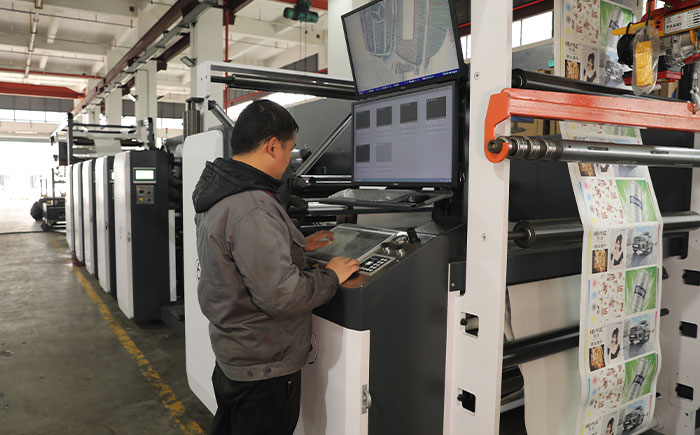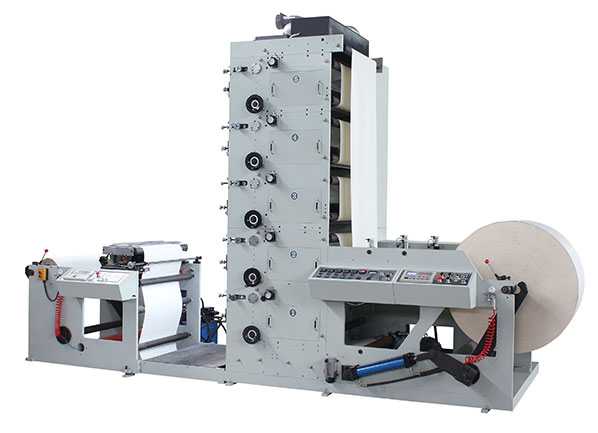 Dec 01, 2024
Dec 01, 2024
Visit:327
 Dec 01, 2024
Dec 01, 2024
Visit:327
Flexo printing is a widely used printing technique known for its versatility and efficiency. It plays a crucial role in various industries, producing a vast array of packaging materials, labels, and more. Here's a detailed look at its printing process:

Design the original according to customer requirements. After that, through electronic color separation or photographic plate - making processes, the original is transformed into a printing plate suitable for Flexo printing. The commonly - used plate material is solid - type photosensitive resin plate.
Select appropriate inks such as water - based, solvent - based or UV - curable inks according to the printing materials and printing requirements, and then mix and stir them to achieve suitable viscosity and fluidity.
Install the rolled substrate such as paper, plastic film, corrugated cardboard, etc. on the unwinding and feeding part of the Flexo printing machine, and adjust parameters such as tension and position.
The ink flows out of the ink fountain and is transferred to the anilox roller through the ink fountain roller. The anilox roller has recessed ink cells or reticulated grooves on its surface, which are made by laser engraving and other processes and are used to control the ink transfer volume. Then, the doctor blade scrapes off the excess ink on the surface of the anilox roller, leaving only a amount of ink on the anilox roller.
The anilox roller with a amount of ink transfers the ink to the image and text part of the Flexo printing plate, so that the image and text part is inked. Then, under the pressure of the impression cylinder, the ink on the printing plate is transferred to the substrate to complete the printing of the image and text.
The printed substrate passes through the drying part, such as a dryer or UV - curing device, so that the ink dries or cures quickly to prevent ink smudging and adhesion.
Conduct quality inspection on printed products to check the clarity of images and texts, the accuracy of colors, the registration accuracy, etc. If there are any problems, make adjustments and treatments in a timely manner.
According to product requirements, carry out post - processing on printed products, such as laminating, varnishing, hot - stamping, die - cutting, slitting, etc., to improve the quality and added value of printed products.
Rewind the printed and processed substrate into a finished roll, or cut it according to a certain size to make single - sheet or bound products.

RY-950-5 Flexo Printing Machine
In summary, the flexo printing process involves a series of precise and interrelated steps from pre-press to post-press. Each stage requires careful attention to detail to ensure high-quality printing results. With the continuous advancement of technology, flexo printing continues to develop and technology continues to improve. Our flexo printing machines meet the diverse and growing needs of the modern printing market. If you need, please contact us.
 Apr 22, 2025
Apr 22, 2025
 Mar 19, 2025
Mar 19, 2025
FLEXO PRINTING MACHINE
FLEXO PRINTING MACHINE
FLEXO PRINTING MACHINE
GET A QUOTE